Table of Contents
L-Theanine (r-glutamylethylamide) is a non-dietary amino acid found in green tea (camellia sinensis), and the mushroom Xerocomus badius. Structurally, L-Theanine is similar to the neurotransmitters l-glutamate and l-glutamine.
L-Theanine easily crosses the blood-brain barrier. And taken as a supplement or by drinking green tea, reaches your brain within 30-45 minutes.
L-Theanine can lower blood pressure, rejuvenate and relax you, boost your ability to think, improve focus and change your mood. L-Theanine balances brain chemistry and improves cognitive health.
L-Theanine helps:
- Brain Waves. L-Theanine boosts alpha brain waves (8-12Hz) promoting alert relaxation.[i] And theta brain waves associated with creativity and relief from trauma.
- Neurotransmitters. L-Theanine increases GABA, serotonin and dopamine levels in your brain. Producing an energizing and calming effect. And improving cognition and memory.
- Neuroprotection. L-Theanine is an agonist of NMDA receptors and can inhibit synaptic release of glutamate. Protecting your brain from over-stimulation caused by glutamate, and possible glutamate toxicity.
Overview
L-Theanine (r-glutamylethylamide) is a non-dietary amino acid found in tea. And especially high levels in green tea (camellia sinensis). L-Theanine was first isolated from green tea in Japan by Sakato in 1949.
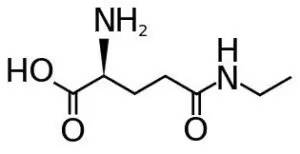
As an analogue of glutamate and glutamine, it’s hydrolyzed in your intestine and liver into l-glutamate and ethylamine. And easily crosses your blood-brain barrier.
L-Theanine is one of the very few nootropics known to modulate brain waves. It affects alpha brain waves which are associated with relaxation. Providing an alert calmness, L-Theanine helps in promoting super-learning, flow states and joy.
L-Theanine boosts the neurotransmitters serotonin, dopamine and GABA in your brain. As well as increasing Brain-Derived Neurotrophic Factor (BDNF) and Nerve Growth Factor (NGF).[ii]
L-Theanine is known for helping to relieve stress, improve cognition, boost mood and cognitive function.
How does L-Theanine work in the Brain?
L-Theanine boosts brain health and function in several ways. But two in particular stand out.
- L-Theanine reduces physical and mental stress. L- Theanine helps increase alpha brain waves which are associated with mental relaxation and concentration.
One study in South Korea worked with 20 healthy male volunteers aged 18 – 30 years. One group was given L-Theanine tablets, and the other group a placebo daily for 7 days.
Brain waves were measured 40 minutes after administration of the tablets. The researchers analyzed alpha wave power values. And concluded that L-Theanine tablets promoted the release of alpha brain waves related to mental relaxation and concentration.[iii]
In May 2016, researchers at Simon Fraser University in Canada developed a technology to clinically measure brain wave patterns. With this technology, we’re now able to detect cognitive dysfunction before it happens. Imagine the implications of this new technology when applied to the nootropics world.[iv]
- L-Theanine increases neurotransmitters. Research shows that L-Theanine increases dopamine, serotonin, and GABA in your brain.[v] And it reduces the excitatory neurotransmitter glutamate which is associated with stress, tension and agitation.[vi]
A study done in Japan worked with 12 people who underwent 4 separate trials. One in which they took L-Theanine at the start of the experiment. One in which they took it half-way through. And two control trials in which they took either a placebo or nothing.
The results showed that L-Theanine resulted in a reduction in heart rate and s-IgA associated with acute stress. The researchers concluded that L-Theanine could cause anti-stress effects via the inhibition of cortical neuron excitation.[vii]
How things go bad:
As we get older, our brain chemistry and energy metabolism changes.
↓ Neurotransmitter levels decline
↑ Glutamate levels increase
↑ Stress levels increase
↓ Long-term memory and mood decline
↓ Quality of sleep declines
All of these changes can happen at any age once we reach adulthood. And are contributing factors to the neurodegenerative diseases of aging, and quality of life.
L-Theanine benefits
L-Theanine energizes without draining, calms without putting you to sleep, and motivates without causing a jagged edge.
 Tea (as a source of L-Theanine) can have as much caffeine as some coffees. And yet doesn’t exert the same “speedy” effect. And the reason is the ingredient L-Theanine.
Tea (as a source of L-Theanine) can have as much caffeine as some coffees. And yet doesn’t exert the same “speedy” effect. And the reason is the ingredient L-Theanine.
You can actually see L-Theanine’s effect in your brain using an EEG. Brain waves are smoothed out rather than flattened out.[viii] So your body is relaxed, your mind is calmed, but you don’t get sleepy. And L-Theanine, once it crosses the blood-brain barrier, raises levels of serotonin and dopamine.[ix]
L-Theanine even improves your quality of sleep. Researchers in Japan gave volunteers 200 mg of L-Theanine daily and recorded their sleep patterns. Sleep quality, recovery from exhaustion, and feeling refreshed were all enhanced by L-Theanine.[x]
And L-Theanine puts you in a better mood. Once it crosses your blood-brain barrier, L-Theanine changes levels of amino acids affecting serotonin, dopamine, and GABA. Having a modulating effect on mood.[xi]
How does L-Theanine feel?
Your unique neurochemistry including neurotransmitters, brain waves, brain structure and even regional brain activity will influence your response to L-Theanine.
Most neurohackers report a calming effect within 30 – 45 minutes of taking L-Theanine. Cognition gets a boost, and energy levels rise without the jitteriness caused by stimulants like caffeine.
Some report L-Theanine has stopped their anxiety and panic attacks. Just don’t combine it with anti-anxiety meds like Xanax.
Most report an overall improvement in the sense of well-being and quality of life. And nearly all remark on better quality sleep.
L-Theanine Clinical Research
Green Tea reduces incidence of stroke
Research has found that if L-Theanine is present in the body at the time stroke occurs, brain damage will be significantly reduced.
In this monster study done in China, researchers selected 14,212 subjects from 12 provinces. Ages ranged from 35 – 60 years old. The study looked at tea drinking status, dose and type of teas.
This study concluded there was a 40% decreased risk of stroke in those who drank green, black or jasmine teas.[xii]
L-Theanine improves memory
In this double-blind, placebo-controlled study, the effect of L-Theanine on memory and attention was investigated.
91 subjects with mild cognitive impairment were enrolled in this study. One group received 1,680 mg of L-Theanine daily for 16 weeks. And the control group received a placebo.
The study concluded that L-Theanine increased brain Theta waves associated with cognitive alertness and creativity. And there were improvements in memory. The results of this study suggested that L-Theanine has potential as an intervention for cognitive improvement.[xiii]
And that is an understatement by any stretch. People spend years meditating. With the goal of reaching consistent access to brain wave states like Theta. In this trial, they did it with a dose of L-Theanine. The same type of dose you could get with a few cups of quality green tea.
L-Theanine reduces stress
Considerable research has been dedicated to L-Theanine and its benefits to stress reduction in both animal and human studies. And we have ample documentation that corticosterone and stress exert negative effects on memory.[xiv]
Corticosteroids which are secreted after stress, have a profound impact on long-term potentiation and memory formation.[xv]
In this animal study, rats were fed water containing L-Theanine for 3 weeks and put through some stress inducing exercise. The researchers found that corticosterone levels were lower in the rats who used L-Theanine compared to those who had none.
In fact, stress had no effect on the animals who were fed L-Theanine. Memory was not affected. The researchers concluded that L-Theanine modified corticosterone secretion. And L-Theanine is a strong preventive measure in preventing memory loss otherwise induced by stress.[xvi]
L-Theanine Recommended Dosage
Recommended dosage of L-Theanine is 100 – 400 mg once or twice per day. With a maximum of 1,200 mg per day according to the Cleveland Clinic.[xvii]
L-Theanine is water soluble so you can take it with water.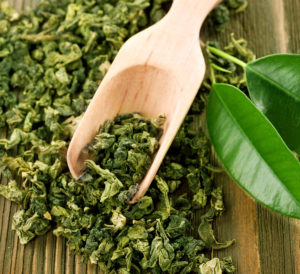
Labels on quality green tea often only display the amount of green tea leaf available in each bag in milligrams (mg). But not its L-Theanine content. Green tea that’s steeped correctly will offer 1-2% L-Theanine per cup. So 1,500 mg of green tea leaf would be about 30 mg. of L-Theanine (at 2%).
We often say that YMMV, and this is especially applicable to L-Theanine. Find out what works best for you. Start at a lower dose like 100 mg. And work your way up until you achieve the effects you’re looking for.
L-Theanine Side Effects
L-Theanine is a naturally occurring amino acid found in plants like tea or one species of mushroom. So it’s considered non-toxic and very safe.
Theanine seems to decrease blood pressure. So if you’re on meds for high blood pressure, use L-Theanine with caution. Your blood pressure could go too low.
Type of L-Theanine to Buy
L-Theanine is available in green, black and white teas. Green tea contains the most L-Theanine.
A great side benefit for neurohackers is green tea also contains caffeine. A cup of good quality green tea has less caffeine than a cup of coffee. About 10 mg less.
L-Theanine + Caffeine stack
One study done at Unilever in the UK looked at the combined effects of L-Theanine and caffeine on cognitive performance and mood. They compared 50 mg of caffeine with and without 100 mg of L-Theanine.
The research team had 27 volunteers participate. And based measurements on word recognition, rapid visual information processing, critical flicker fusion threshold, attentions switching and mood.
Performance was measured at the beginning, and again 60 minutes and 90 minutes after consumption. Separated by a 7-day washout period.
Caffeine improved alertness at 60 mins. And accuracy on attention-switching at 90 mins. The L-Theanine and caffeine combination improved both speed and accuracy, and reduced susceptibility to distracting information on the memory task.
The research team concluded that, “L-Theanine and caffeine in combination are beneficial for improving performance on cognitively demanding tasks”.[xviii]
And for an added bonus, L-Theanine takes the jittery-edge off of caffeine consumption.
The best pre-formulated caffeine + L-Theanine stack I’ve tried, and use is the new Performance Lab® Caffeine 2. It contains Natural Caffeine (from Coffea Robusta seeds) 50 mg, L-Theanine 100 mg, L-Tyrosine 250 mg, with a balanced NutriGenesis® B-Complex. For alert clean energy without the jitters.
L-Theanine from green tea
Extracting the optimal amount of L-Theanine from green tea is both art and science.
Researchers at the University of Newcastle in Australia set out to determine optimal conditions for water extraction of L-Theanine from green tea. They examined 4 different extraction methods. And learned that temperature, extraction time, ratio of water-to-tea and tea particle size had significant impacts on extraction yield of L-Theanine from green tea.
They concluded, “The optimal conditions for extracting theanine from green tea using water were found to be extraction at 80 °C for 30 min with a water-to-tea ratio of 20:1 mL/g and a tea particle size of 0.5-1 mm.” [xix]
So to get the most nootropic value when using green tea as your L-Theanine source – follow the directions. Just sayin’…
L-Theanine Supplements
L-Theanine is available in capsule or tablet form from several supplement manufacturers. Japanese company Taiyo is the oldest and most established company in the green tea supplement industry. Taiyo developed and patented a method for L-Theanine extraction from green tea called ‘Suntheanine®’.
Suntheanine can be found in some of higher quality pre-formulated nootropic stacks. For example, Mind Lab Pro® contains 11 brain enhancing nootropic compounds including Suntheanine.
Research has shown that some supplement makers using their own extraction method for L-Theanine, contain more than just the “L” form of Theanine. Turns out if it’s not done exactly right, you end up with a “D” form of Theanine.
D-Theanine may have a very different action in your body than L-Theanine. We’re not saying it’s dangerous. You just may not get all the benefit of pure L-Theanine.
So read the labels and reviews by people who have tried the product.
I recommend Mind Lab Pro because it uses Suntheanine. And addresses all aspects of anxiety resistance, memory and cognitive enhancement, stabilizes mood, brain repair, and maintenance.
This premium nootropic stack is designed to affect neurotransmitters, cognitive energy, brain waves, neuroprotection, and regeneration. See my Mind Lab Pro review for a detailed report.
You will also find Suntheanine® in the new Performance Lab® Caffeine 2. It contains Natural Caffeine (from Coffea Robusta seeds) 50 mg, L-Theanine 100 mg, L-Tyrosine 250 mg, with a balanced NutriGenesis® B-Complex.
Nootropics Expert Recommendation
L-Theanine 100 – 500 mg per day
 I recommend using L-Theanine as a nootropic supplement.
I recommend using L-Theanine as a nootropic supplement.
Your body cannot make L-Theanine on its own. It’s a non-dietary amino acid only available from tea (and one little-known mushroom).
L-Theanine affects Alpha and Theta brain waves. This alone will help calm your mind, reduce stress, and help you stay alert. You’ll get even more cognitive benefit by stacking L-Theanine with caffeine.
L-Theanine helps boosts the neurotransmitters dopamine, serotonin, and GABA. Improving alertness and attention. And boosting cognition and memory.
And it reduces the excitatory neurotransmitter glutamate which is associated with stress, tension and agitation.
L-Theanine helps to prevent strokes, and even reduces the damaging effects if you’ve had a stroke.
And L-Theanine has been shown to improve sleep quality.
I suggest starting with a dose of 100 – 250 mg of L-Theanine daily for nootropic use. Using either a quality supplement, or high quality green tea.
Mind Lab Pro contains a synergistic blend of 11 brain enhancing nootropics covering all aspects of cognition and brain health. See my full Mind Lab Pro review for more.
Or for a smooth energy boost I recommend the new Performance Lab® Caffeine 2. For alert clean energy without the jitters.

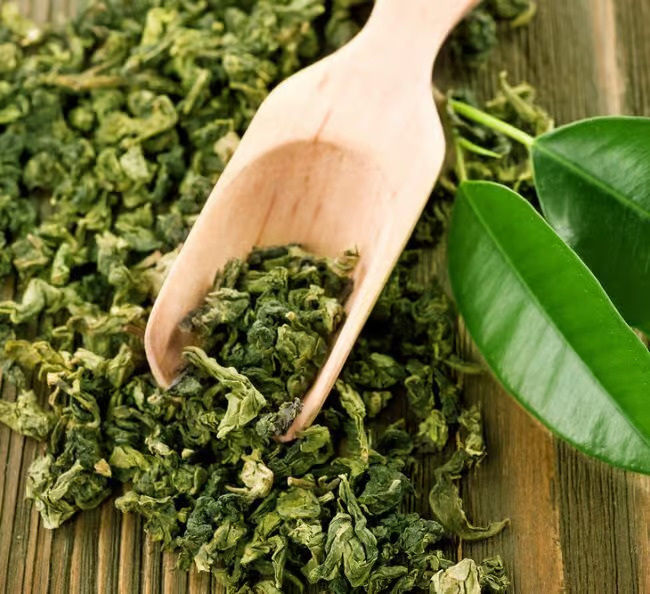
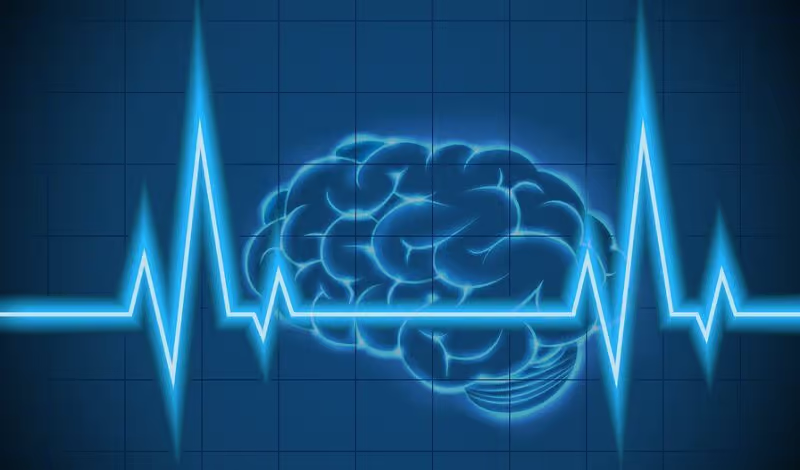
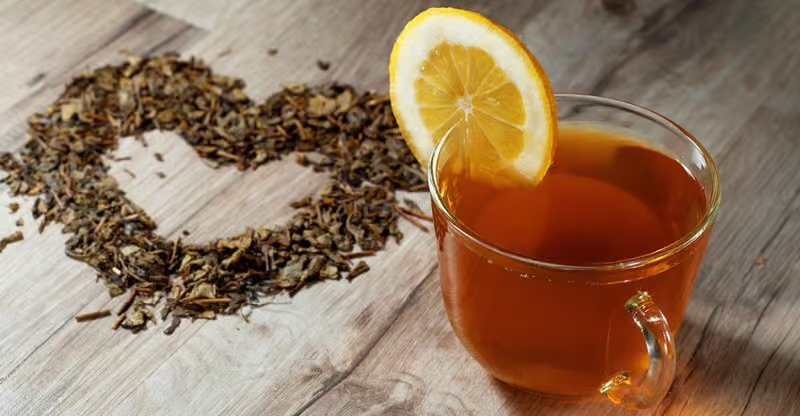





Join The Discussion - 315 comments
Tony R
March 10, 2021
David,
I started L-Theanine today, they are 200mg each. I took the first on an empty stomach and felt zero effect in regards to reducing anxiety or making me feel an overall calm. I then took another several hours later, same thing no effect. I am a non-responder to many medications, could I have a non response to this as well? 400mg first time and 200mg on an empty stomach lead me to believe I am…..
David Tomen
March 11, 2021
Tony, if you’re a non-responder to some medications you’ll likely also not respond to certain natural supplements. L-Theanine may be one of them.
The thing is you need to find out the cause of your anxiety. If it’s a neurotransmitter imbalance then find out which one. The problem with L-Theanine in this case is it affects nearly all major neurotransmitters which is not helpful in this case.
I walk you through a trial and error protocol in this article which may help you figure it out: https://nootropicsexpert.com/best-nootropics-for-anxiety/
John
March 7, 2021
Hi, David. Do you still get the anti-anxiety benefits from l-theanine when combining it with coffee, or does coffee diminish the effect?
David Tomen
March 8, 2021
John, it’ll diminish the effect some but the reason you stack the two is because L-Theanine helps inhibit the increase in cortisol caused by caffeine. And it boost levels of dopamine which is used by caffeine.
John
March 10, 2021
David, so if I understand correctly, even though its anti-anxiety effect is diminished somewhat, L-Theanine will keep caffeine from causing anxiety or exacerbating it, correct? Also, is L-Theanine OK to take while taking St. John’s Wort?
David Tomen
March 11, 2021
John, you are correct. And I’m not aware of any contraindication between L-Theanine and St. John’s wort.
Wen
February 16, 2021
Is it safe to take L-theanine 250 at the same time as D-phenylalanine about 250. I spilt a capsule in half. Taking for anxiety and depression. (2x a day) I get confused if you can take amino acids at once together or space throughout the day each separately? Also 2 L-trytophan at night with magnesium.
David Tomen
February 16, 2021
Wen, it’s not contraindicated and should be safe. But that may not be true for everyone.
You can take amino acids together but they may end up competing for the same transporters. So, potentially you may not get the full benefit of both supplements if taken together. But that is pure speculation on my part.
Amino acids are metabolized quickly and most have a short half-life of a couple of hours. This is why I dose L-Tyrosine 3-times per day. There is none left in my system by the time I take my L-Tryptophan and magnesium before bed.
David
February 8, 2021
Can you specify if any scientific research has been done on
Mucuna pruriens.
I have tried and encountered the benefits.
Is it medically tested and certified as safe??
Kindest regards
David
David Tomen
February 9, 2021
David, there has been a ton of clinical studies done on Mucuna Pruriens extract. See my review which has 12 studies linked to it: https://nootropicsexpert.com/l-dopa/
Dan
February 7, 2021
More than a hour now i was trying to find out in the www how L-Theanine is exactly working in the brain, but i wasnt successful. Strange no one is interested how its actual working.
All i got so far is the blocking effect on glutamate, but how it increases Gaba, Dopamin and Serotonin ?
Its very important for me to know because i wont use Suppliments which downregulate on long term use like receptor manipulating substances often do with me.
Does the levelof Gaba, Dopamine, Serotonin change in long term ?
And if it increases Dopamin and Serotonin at the same time, how does it affect the balance between both? (Because for example if im low in Dopamine, and Theanine increase Dopamine and Serotonin, shouldnt the effect in increased Serotonin harm more than the increased level in Dopamine does for the balance between both)
And if i take L-Theanine long term does the glutamate NMDA antagonist effect could lead to withdrawals like Glutamate upregulation ?
David Tomen
February 8, 2021
Dan, L-Theanine increases electrical activity in neurons which in turn increases the release of GABA, dopamine and serotonin in certain areas of the brain.
Note that L-Theanine is NOT a precursor to any of these neurotransmitters. So it’s not making “new” dopamine for example. Instead, it is encouraging the release of existing dopamine.
So, it cannot “change” the amounts of these neurotransmitters not even in the short-term. I take your point of the importance of dopamine and serotonin imbalance. That does not appear to the case with L-Theanine based on decades of use by 10’s of thousands of people.
I’ve been doing this for a while and I’ve never heard of someone going through withdrawal when discontinuing L-Theanine use. It’s not physically possible.
Sven
November 12, 2020
Hi David! This is (probably) my future stack, some nootropics I already have and others I plan on getting:
NAC
ALCAR
Alpha-GPC
L theanine + caffeine
Agmatine sulfate
Polygala
B-complex
Aniracetam
Sulbutiamine
Turmeric + bioperine
Phosphatidylserine
Omega3 DHA & EPA
and magnesium glycinate before sleep
I am an active person (I do bodybuilding) and my goal is to reduce anxiety/stress/depression and to increase motivation/energy/mood. I need your thoughts on this stack. Would you add something that could complement this stack really well or maybe remove something if it doesn’t fit in there and could cause the issues? Or would you replace anything with something else?
And do you have any tips/cautions or something to look out for in this stack?
PS. all my vitamins and minerals needs are met.
Thank you very much for the work you’ve put into researching nootropics and helping us all a lot!
David Tomen
November 13, 2020
Sven, I am not familiar with Agmatine sulfate or Polygala so cannot comment on them. The only glaring omission I see at the moment is L-Tyrosine.
Sven
November 14, 2020
Should I supplement L-tyrsoine anyways if I have a well balanced diet that already has L-tyrosine and meets recommended daily amount? Would there be any benefit if I am not deficient?
David Tomen
November 14, 2020
Sven, it depends on what you are using L-Tyrosine for. If your brain needs it it is highly unlikely you are getting enough from food.
Sven
November 16, 2020
One more question David. If a nootropic is fat-soluble, will drinking it with full fat milk work? Or does it have to be some kind of an oil?
David Tomen
November 16, 2020
Sven, full-fat milk will work.
Bob Anderson
November 3, 2020
Hi David,
Wondering about taking l-theanine with food or without food. What is the recommendation on this? Thanks.
David Tomen
November 4, 2020
Bob, L-Theanine is water soluble so you can take it with water.
Ki Aquila
October 25, 2020
hi I just took 100 mg of theanine for the first time and got a headache
Is it important to have it with other nootropics or with food?
David Tomen
October 26, 2020
L-Theanine should not cause a headache. Unless you naturally have low blood pressure. If that is the case then maybe your blood pressure was too low.
The only other thing I can think of is the supplement you have is not pure. Either there is something else in there besides L-Theanine. Or you reacted badly to one of the “other ingredients”. All of which are toxic.